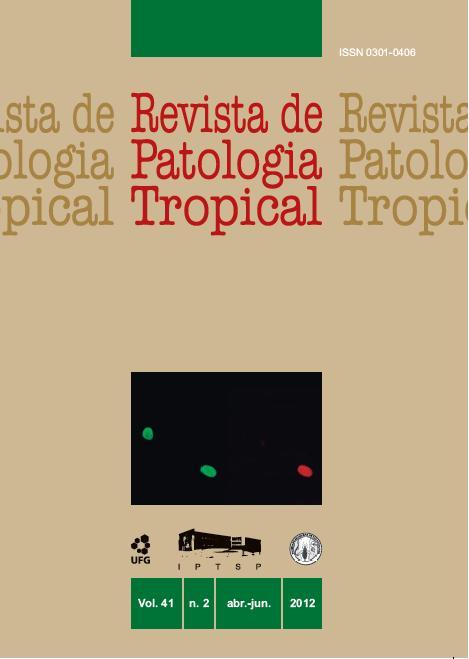Chronic disseminated paracoccidioidomycosis as a first manifestation of HIV infection
DOI:
https://doi.org/10.5216/rpt.v41i2.19333Keywords:
Paracoccidioidomycosis, Paracoccidioides brasiliensis, HIV, AIDS.Abstract
Paracoccidioidomycosis (PCM) is a systemic fungal infection endemic in subtropical areas of Central and South America and caused by the dimorphic fungus Paracoccidioides brasiliensis. PCM is a prevalent disease in Latin America, from Mexico (20 degrees northern latitude) to Argentina (35 degrees southern latitude). This distribution includes tropical and subtropical regions and endemic countries with mild temperatures and high and constant humidity throughout the year. Approximately 10 million people are infected by this fungus, however only 2% may develop a disseminated form of the disease. The constant migration from rural to urban areas increases the risk of reactivation of quiescent forms of PCM outside the endemic areas in immunocompetent as well as in immunosupressed patients. The chronic disseminated form of this disease is the most frequent clinical manifestation, characterized by the pulmonary and mucocutaneous involvement. We present the case of an HIV seropositive male with chronic disseminated paracoccidioidomycosis as the first manifestation of retroviral infection. Diagnosis was made based on the epidemiological, clinical, histopathological and microbiological findings.
Downloads
Downloads
How to Cite
Issue
Section
License
The manuscript submission must be accompanied by a letter signed by all authors stating the full name and email address, confirming that the material has not been published or is under consideration for publication elsewhere, and agreeing to transfer copyright in all media and formats for Journal of Tropical Pathology. The authors will not be paid for published articles. They are solely responsible for the content of those articles, even if the Editor holds the right to adjust them to the norms of the journal.
The reviewers will not be paid for the peer review process.

